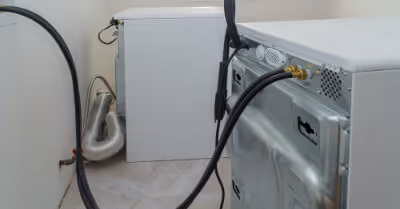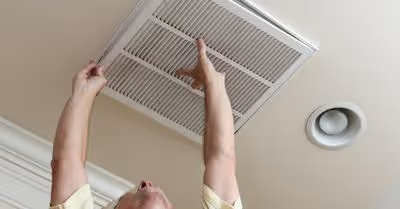Table of Contents
What is Home Equity?
Equity is the difference in the value of your home and the amount that you still owe on your mortgage. For example, if you owe $100,000 on your mortgage and your home is valued at $150,000, then you have $50,000 of equity in the home.
As you continue to pay your mortgage, the amount of equity that you have in the home will increase. In addition, if the value of the home increases, so will the equity that you have in it. Equity can also decrease. This happens when the value of the home decreases faster than the amount that you pay off of the mortgage.
If you purchase a home that is worth the sale price, then any down payment counts as positive home equity. To determine the amount of equity that you have, you will have to know the value of the home. A real estate appraiser can give you an official valuation, but you can also look at similar homes in your area and check the values of homes online to determine an estimate.
Home Equity Uses
Equity can be a great tool with a lot of financial benefits. You can tap into the equity when you sell the home or to pay for upgrades, debts, and retirement. Most, but not all, homeowners have some equity in their homes. Equity rich is defined as at least 50 percent equity in the home.
Towards a New Home
If you are planning to sell your home and upgrade (or downgrade for that matter), you can use equity to help you out. If you have $50,000 dollars in equity, then you will likely leave with profit when someone purchases the home. It may not be $50,000 in profit because of fees and other closing costs, but any profit can go towards a larger down payment on a new home. This allows you to get into a more expensive home than you would be able to otherwise because it decreases the monthly mortgage costs and increases your bargaining power and chances of approval.
For Retirement
If you are nearing retirement age, then you may want to look into reverse mortgages. These allow you to cease your monthly mortgage payments and instead you receive money based on the equity you have in your home. How much you are able to borrow will depend on your current age, current interest rates, and the amount of equity in the home.
When you do this, you can choose to receive the payments monthly, as a line of credit, or as a lump sum. You may even be able to receive a combination of these three payment types. You will not pay back the loan unless you sell the home, move out for more than 6 months, or when you pass away. You can then use any profits from the sale of the home to pay back the loan.
Home Improvements
Home improvement is another way to use your equity because it can increase the home’s value, make the home more comfortable for you, and encourage more interest from prospective buyers in your real estate market. Some improvements have a higher return on investment than others so if that is your goal then be sure to check.
College Tuition, Fees, and Books
A home equity loan can also be a great way to fund a college education as long as your lender approves of that usage. This is most beneficial when mortgage rates are lower than student loan interest rates. If you are considering using home equity to pay for college education you will want to check the terms and interest rates. Also, remember that defaulting on your loan can get your home taken away.
Pay Off Debt
A home equity loan can also be used to consolidate your debt. You can use it to reduce your monthly debt payments or to pay them off altogether if you have enough equity. However, be sure to remember that credit card debt and many other debts are unsecured which means there is no collateral while an equity loan is secured using your home. This is sometimes a good option if you are already having trouble making your debt payments.
How to Increase Home Equity
To increase your home equity you will have to either increase the value of the property or decrease the amount of debt. However, there are several different ways to do these things.
Big Down Payment
This is the fastest way to build equity, but obviously can only be done when you are initially purchasing the home. Each dollar you put down in the home goals towards equity, especially if you purchase the home for less than or equal to its actual value.
Pay More on the Mortgage
This is another simple way to gradually increase the equity that you have in your home. Mortgages are usually on an amortization schedule which means that the payments are made in equal installments over a fixed period of time. This will stay that way until the mortgage is completely paid off. You will always pay principal and interest, a larger amount of the payment will go towards interest at the beginning of the loan term and over time more will go towards the principal.
When you pay more than the minimum amount or make extra payments towards the principal, then the equity will increase faster because you will decrease the amount that you still owe on the mortgage. If you have the extra cash to pay more than the minimum monthly payment, then call your loan servicer for instructions on how to add the extra money to the principal.
Another option is to switch to biweekly mortgage payments instead of monthly. This will add an extra payment to the mortgage each year which will shorten the loan term and increase your equity without increasing the monthly payment amount. You may also want to think about using tax refunds, work bonuses or commissions, cash gifts, or other extra or unexpected money to pay additional amounts on your mortgage.
Refinance for a Shorter Loan Term
A shorter loan term will often decrease your interest rate. In addition, more of the monthly mortgage payment will go towards the principal each and every month. If you can afford to choose a 15 year mortgage when you first purchase the home, then you can build more equity each month as well. However, if you already have a 30 year mortgage then you can choose to refinance for a shorter term. This will increase payments, but also increase your positive equity. You will just have to make sure that you have the additional funds to pay a higher monthly mortgage payment.
Wait for Home to Increase in Value
Real estate markets fluctuate greatly over time and your home value will likely go up and down at different times. As demand grows and home prices increase, the value of your home will increase as well. This will increase the equity in your home without you having to do anything at all. If the home prices drop, your equity may do the same.
You do not have much, if any, control over this aspect of the value of your home. However, it is good to keep in mind and in many areas you are much more likely to have an increase in home value than a decrease.
Home Improvements
Making a solid improvement to your home can greatly increase the value and your equity. Doing a remodel on the kitchen or bathroom, adding a deck or patio, or improving the landscape can go a long way towards increasing your equity. These types of projects do cost substantial cash upfront, but may be a good option in many instances and situations. If you are making improvements or renovations primarily to increase your equity, be sure to choose projects that have high return on investment amounts. Not all home projects increase the value of the property. However, if you are going to make an improvement anyways, the increase in equity could be an indirect benefit.
It is also important to keep in mind that regular maintenance and upkeep is important to increasing the value of the home. If you have small issues around the interior and exterior of the home, then you may see a decrease in value and equity. Additionally, if you decide to sell the home, then you will have to spend money to fix those things anyway.
Forced Savings
People sometimes refer to a mortgage payment as forced savings. This is because you are increasing the value of your asset by paying monthly mortgage payments. This is gradual and takes a long time if you pay the minimum payments each month, but nonetheless it will increase the equity that you have in the home.
Ways to Borrow Against Home Equity
There are three ways that you can choose to borrow against the equity that you have in your home. You can get a home equity loan, a home equity line of credit, or a cash out refinance. Equity is a good way to borrow money because it has low interest rates attached to it. However, you should always remember that if you do not make the adequate payments in time, then your lender could begin the foreclosure procedures.
Home Equity Loan
A home equity works in a similar way as a second mortgage. The amount will be distributed as a single payment and you are free to use the money in whatever way that you want. Then, you will pay back the amount in monthly payments that include interest just like the primary mortgage loan for the home.
Home Equity Line of Credit
A Home Equity Line of Credit, or HELOC) is similar to a credit card except that the credit limit that you have will be tied to the amount of equity that you have in the home. You pay back only the amounts that you borrow, not the entire approval amount for the HELOC.
Cash-Out Refinance
When you choose to go with a cash-out refinance you will refinance for more than the amount that you owe on the mortgage. You will receive this money as cash and can spend the money in whatever way that you want. For example, if you owe $150,000 on your mortgage you can refinance it for $200,000 and keep the additional $50,000 in cash. Then, you will pay back the new amount, $200,000, in monthly payments with interest. The amount that you are able to take out will depend on the amount of positive equity that you have accumulated in your home.
Recent Articles
















